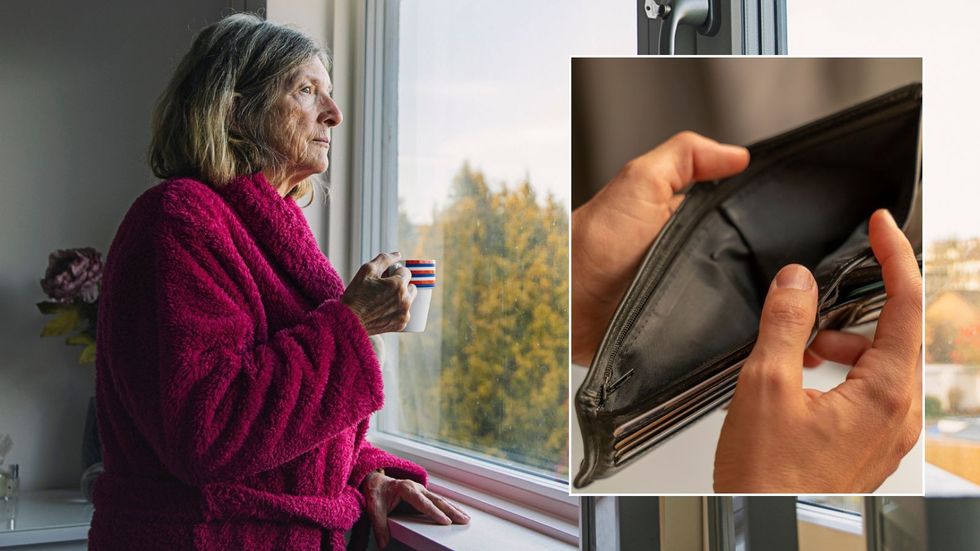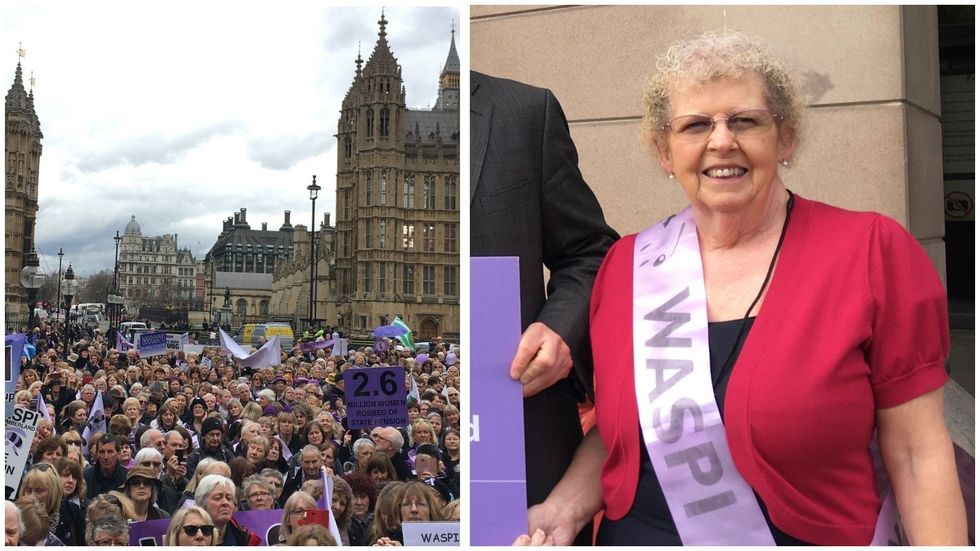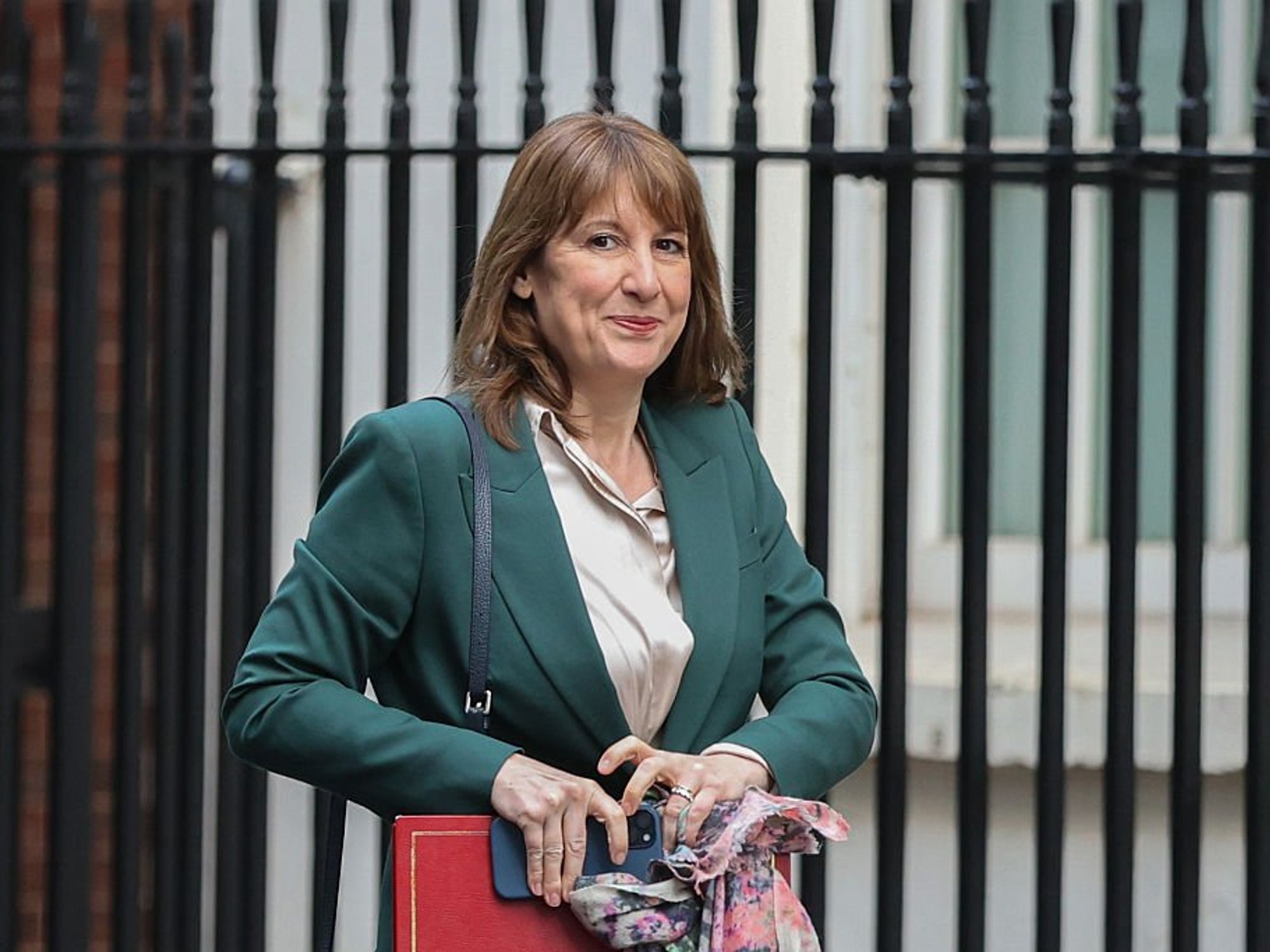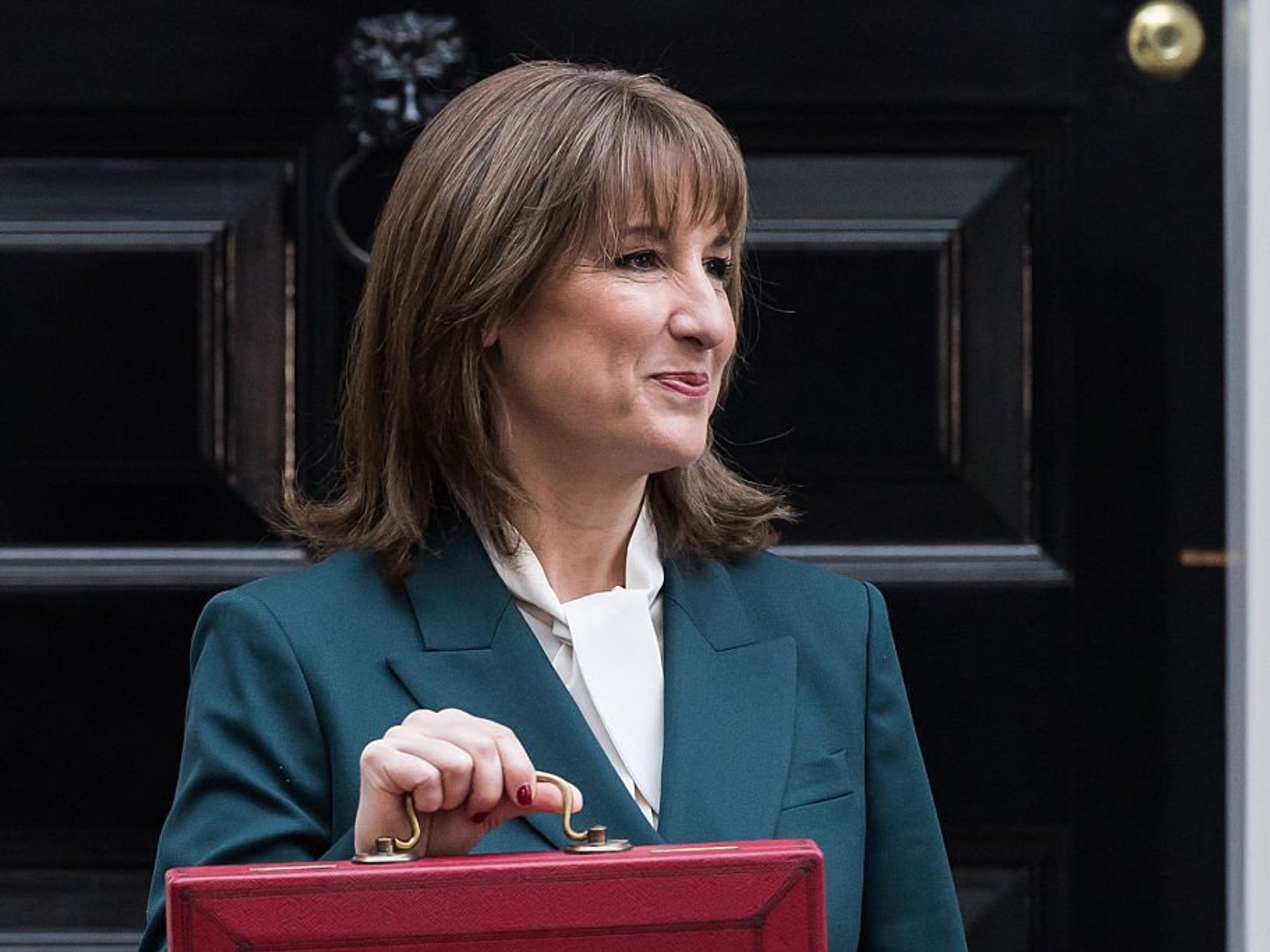State pension age increases resulted in 'large income losses' for thousands, shocking study finds

Director, Centre for Policy Studies, Robert Colvile, discusses whether it is time to scrap the triple lock |
GB NEWS

As it stands, the state pension age is 66 years old and is expected to reach 67 from next year
Don't Miss
Most Read
Latest
Historic increases to the state pension age resulted in "large income losses" for millions of Britons, according to new research from the Institute for Fiscal Studies (IFS).
Thanks to the 1995 Pensions Act, the retirement age threshold between the sexes was equalised, however studies suggest women have lost out financially from this decision.
Women who were jobless in their late 50s have suffered nearly double the financial blow from state pension age rises compared to those still working, based on the IFS' findings.
The study reveals unemployed women experienced weekly income losses of £81 when the pension age increased from 60 to 66 between 2010 and 2020, while employed women saw their incomes fall by £42 per week.

Experts warn increases to the state pension resulted in 'large income losses' for thousands of people
|GETTY
Economists claim the disparity stems from unemployed women's inability to re-enter the workforce when faced with delayed pension eligibility.
According to the IFS, these women frequently struggle with poor health, disabilities and already low incomes, making employment particularly challenging.
In stark contrast, women who maintained employment in their late 50s demonstrated remarkable adaptability. Their workforce participation between ages 60-64 surged by 16 percentage points, as many chose to postpone retirement rather than face income gaps.
This employment divide explains why jobless women bore the brunt of the pension reforms. Whilst working women could offset pension delays through continued earnings, those already outside the labour market found themselves with few options to compensate for lost pension income.
Do you have a money story you’d like to share? Get in touch by emailing money@gbnews.uk.
 Britons are concerned about the rise in the state pension age | GETTY
Britons are concerned about the rise in the state pension age | GETTYThe financial strain has forced changes in how affected women engage with their communities. Cultural and social participation dropped by eight percentage points from a pre-reform baseline of 53 per cent, with fewer women visiting museums, theatres or participating in sports and social clubs.
Life satisfaction scores decreased by 0.25 points on a scale of 0 to 10 for all affected women, with those already unemployed experiencing a steeper decline of 0.38 points. The pre-reform average stood at 7.5.
Despite this, spending on necessities like food and energy remained unchanged, suggesting women prioritised essential expenses whilst sacrificing social engagement.
The pension age increases have generated approximately £6billion in annual savings for the government, with research from the London School of Economics indicating the wellbeing impacts remain modest relative to potential benefits from alternative public spending.
MEMBERSHIP:
- REVEALED: Embattled Keir Starmer to face voters in 24 hours as pressure mounts on him to resign
- Nigel Farage on collision course with Ed Miliband's climate agenda as new poll reveals surprising results
- Keir Starmer just put the final nail in his party's coffin. But hold off popping the cork - Carole Malone
- EXCLUSIVE: Keir Starmer 'rumbled' before state visit as Donald Trump's team handed embarrassing private letter
- POLL OF THE DAY: Do the courts have too much power in blocking migrant deportations? VOTE NOW
Heidi Karjalainen, a senior research economist at IFS and report author, stated: "Raising the state pension age is an important lever for easing fiscal pressures from an ageing population, but our research shows that the costs of increases so far have not been equally felt.
"Women already out of paid work by their late 50s, often in poor health and on low incomes, rarely return to paid work in response to a higher state pension age. Instead, they experience larger income losses and reduced participation in social activities."
She emphasised that the findings shouldn't halt future pension age rises but rather highlight the necessity for enhanced assistance for those most affected. The government's third state pension age review, launched in July, must address these concerns.
Issues surrounding pensioner poverty have been raised by various charities and activist groups in the past, including the Women Against State Pension Inequality (Waspi) campaign.
LATEST DEVELOPMENTS:
 The WASPI campaign has fought to address historic inequality women has faced | WASPI
The WASPI campaign has fought to address historic inequality women has faced | WASPI The campaign has lobbied consecutive Governments for compensation with the Parliament and Health Service Ombudsman (PHSO) determining those impacted by the pension age changes could be entitled to compensation.
Angela Madden, Chair of Women Against State Pension Inequality (WASPI) said: "It is no surprise that WASPI women feel totally abandoned by those who once promised to right this historic injustice.
"After 10 years of campaigning, this generation of women are more determined than ever to secure the justice we are due. Despote the hopes of some, we are not going away. We know hundreds of MPs across the political parties back our calls for fair compensation, as do an overwhelming majority of the public.
"Ministers should heed the calls of many of their own MPs and get around the table with WASPI women, or face being forced to defend the indefensible in court later this year."
More From GB News










